Melanotan
Price range: $29.17 through $96.03
Earn 29 - 96 points upon purchasing this product.
For optimal stability and integrity, we recommend reconstituting all peptides with bacteriostatic water, as reliability cannot be guaranteed with alternative solutions.
- 1st and 3rd Party Verified for 99% Purity
- Free Shipping on Orders Over $100+
Description
What is Melanotan?
Melanotan is a synthetic peptide designed for research purposes. It is structurally similar to the naturally occurring hormone alpha-melanocyte-stimulating hormone (α-MSH). These receptors are involved in various biological processes, such as skin pigmentation, appetite regulation, and immune response.
Melanotan is available in two variants, Melanotan 1 and Melanotan 2, each with unique properties and research applications.
Melanotan 1 vs. Melanotan 2
| Feature | Melanotan 1 | Melanotan 2 |
| Primary Target | MC1R (Melanin Production) | MC1R, MC3R, MC4R(Melanin, appetite, energy balance) |
| Duration of Action | Longer half-life, stable effect | Shorter half-life may require frequent dosing |
| Side Effects | Fewer reported in studies | Potential for appetite suppression, nausea, and flushing |
| Research Focus | UV protection, pigmentation studies | Pigmentation, appetite, and weight regulation |
| Potency | Lower | Higher |
What is the mechanism of action of melanotan?
Melanotan may work by binding to melanocortin receptors, particularly MCR1, which is responsible for regulating melanin production in melanocytes. Upon activation, these receptors might increase melanin levels, potentially contributing to skin pigmentation.
Melatonin could also interact with other melanocortin receptors, such as MCR3 and MCR4, which might play roles in appetite control, energy balance, and other physical functions.
What are the potential benefits of Melanotan?
Research studies suggest that Melanotan might:
- Support pigmentation research: It may help in studying how melanin production occurs in the skin.
- Aid-appetite-related studies: Melanotan 2, in particular, could be used to investigate appetite regulation pathways.
- Help in UV protection research: It might reduce skin damage caused by UV exposure by stimulating melatonin production.
- Facilitate energy metabolism research: Studies have indicated it could have implications for energy balance.
Note: These potential benefits are based on preliminary research and should not be interpreted as verified effects.
Clinical Research
Melanotan is still under investigation, but some clinical studies show:
- Skin Pigmentation studies: Research has focused on its effects on increasing melanin levels and investigating conditions like vitiligo.
- Appetite and energy balance studies: Melanotan 2 has been studied in the context of appetite suppression and energy metabolism.
- UV protection research: Early studies suggest it might have a protective effect on skin exposed to UV radiation.
Melanotan and Weight Management
Preliminary research suggests Melanotan 2 might influence appetite and energy expenditure via MC4R receptors. This interaction could make it relevant in studies exploring weight management, energy metabolism, and related pathways.
However, these effects are not fully understood and require further investigation.
FAQs
What is Melanotan used for in research?
It is studied for its potential to support pigmentation, appetite regulation, and UV protection research.
How does Melanotan differ from other peptides?
Melanotan specifically targets melanocortin receptors and may influence melanin production and other physiological processes.
Where can you buy Melanotan online for research purposes?
If you are looking to buy Melanotan for research purposes, PureRawz offers high-quality research products.
We provide reference materials with every product we sell. A Certificate of Analysis is available for reference, providing information on identification, purity, and concentration.
Is melanotan legal?
Melanotan is considered legal for laboratory research. It is not approved by the FDA for human consumption.
Are there any side effects of this product?
Research indicates that it might have side effects such as flushing, appetite changes, and possible nausea, especially with Melanotan 2.
Summary
Melanotan is a potent peptide for research into pigmentation, appetite regulation, and energy metabolism. The clinical studies show promising results but further research is required to fully understand its potential.
Disclaimer
This information is for educational purposes only and not medical advice. Products are for research use only. Research must follow IRB or IACUC guidelines. Verify information independently before purchasing. By ordering, you agree to our Terms and Conditions. If you are not 100% satisfied with the product you received, please contact us at support@purerawz.co
ATTENTION: All our products are for LABORATORY AND RESEARCH PURPOSES ONLY, not for veterinary or human usage.
COA

12 reviews for Melanotan
You must be logged in to post a review.
Please click here to access instructions on how to make a payment.
How to Pay
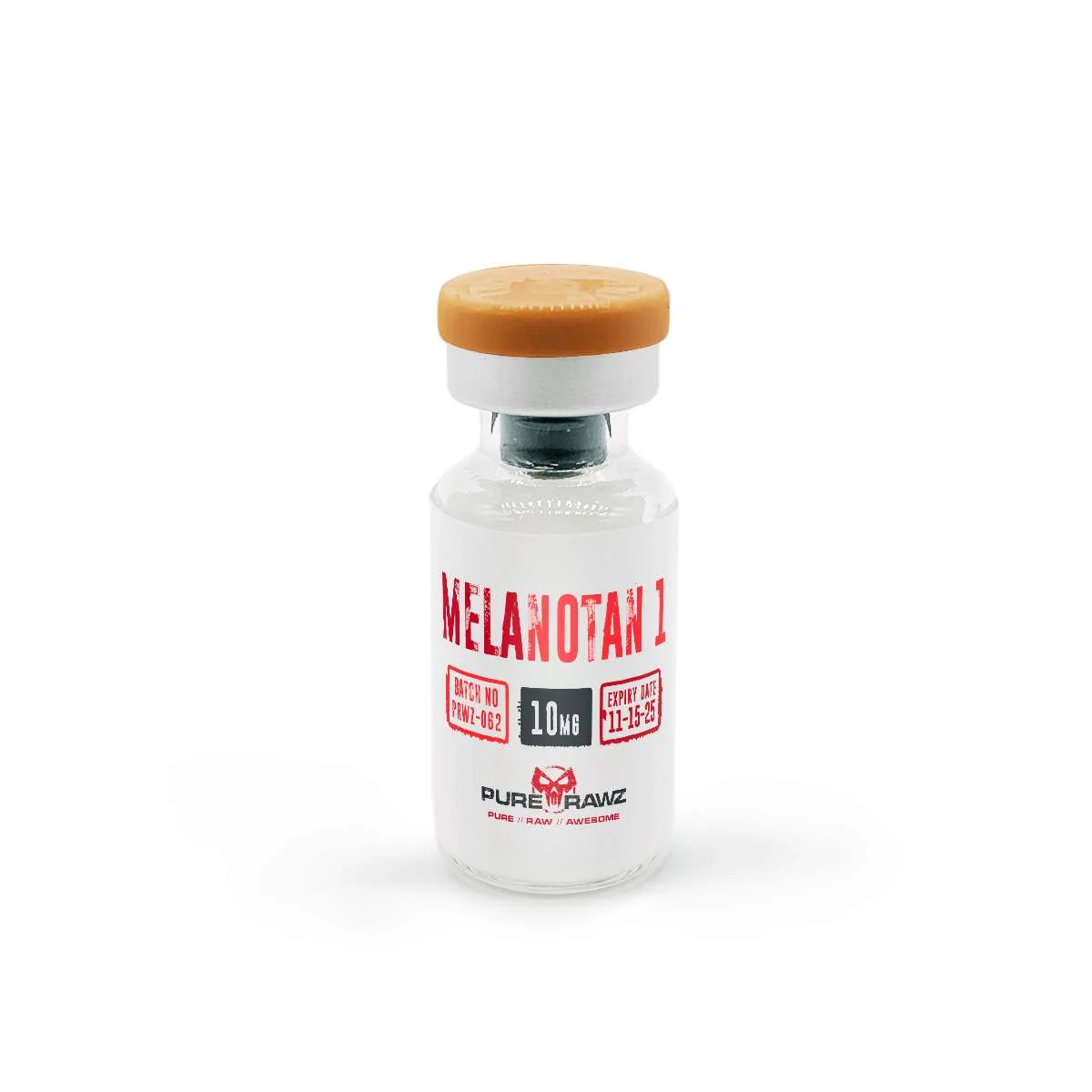
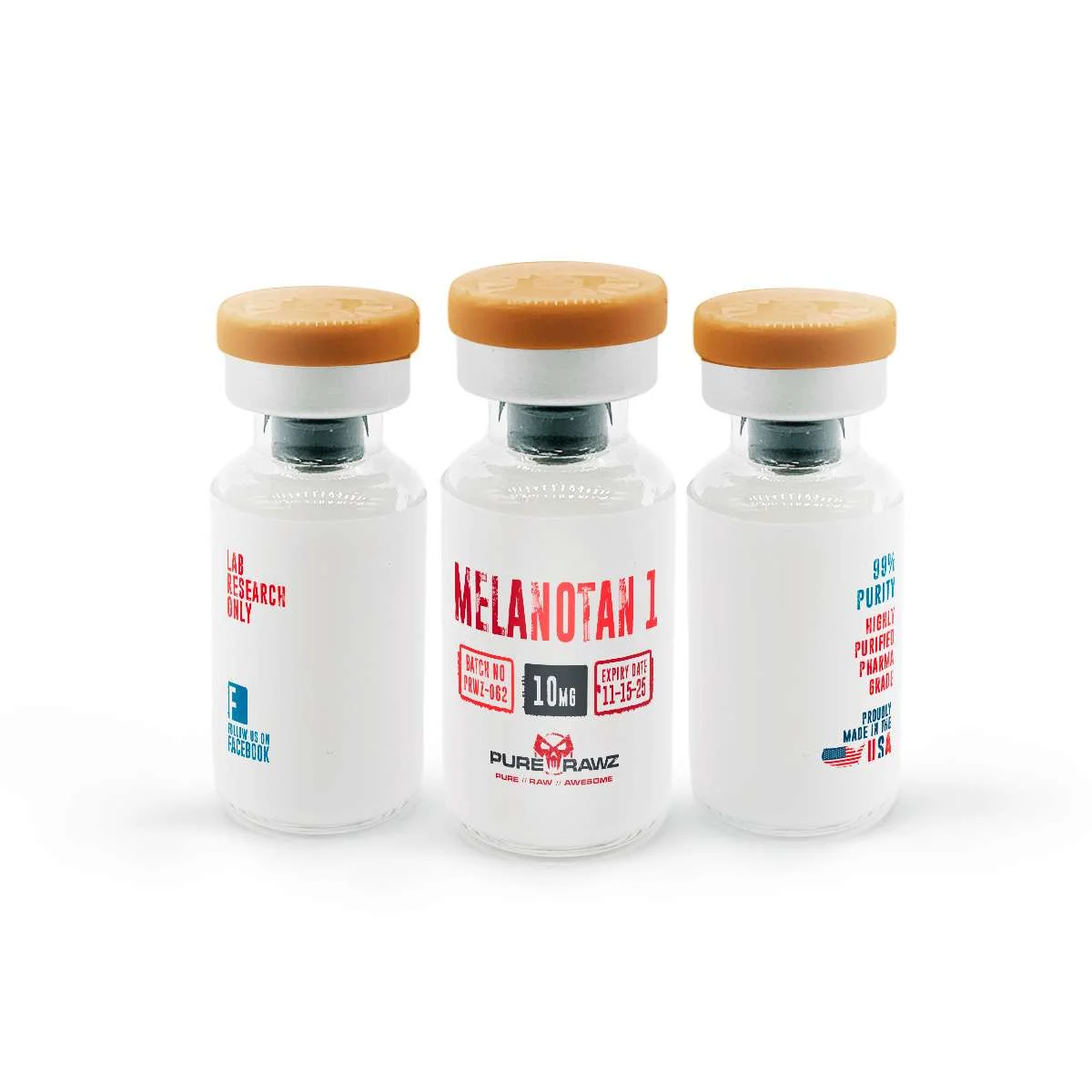
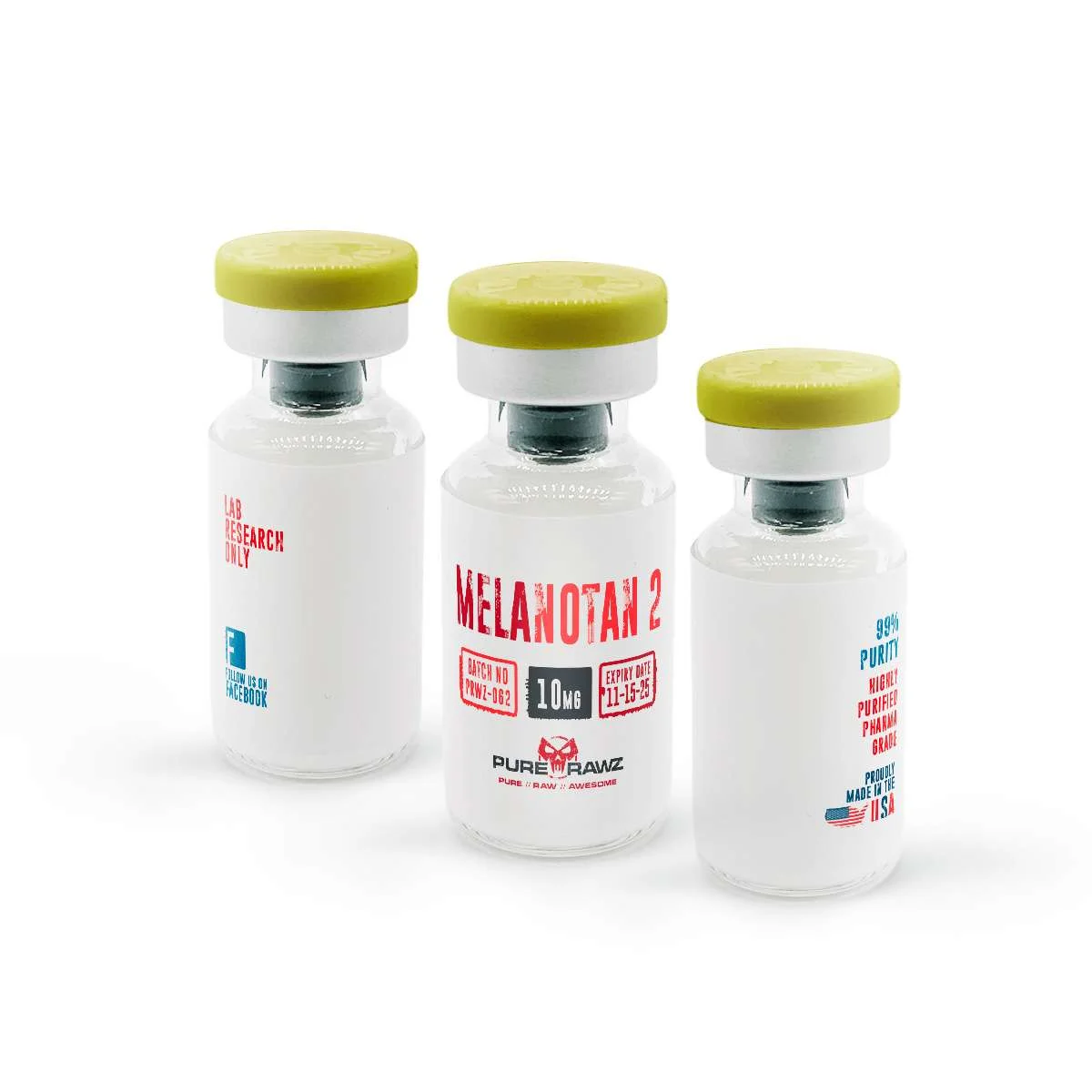
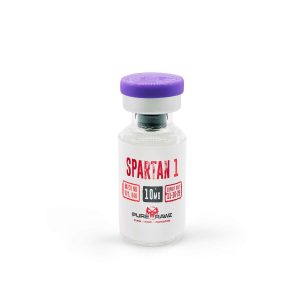
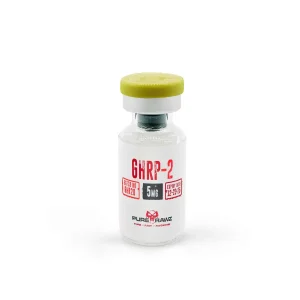
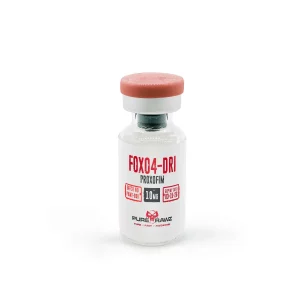
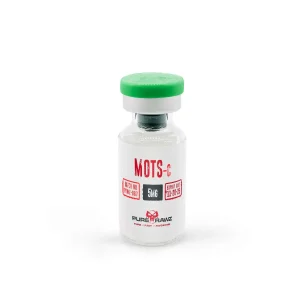

Joey Patters –
Satisfying. Thank you, Rawz!
Chantel Rose –
Very good product at an amazing price as well! Definitely sleeping so much better.
Steven Gould –
Simple process and excellent results!
Tristan Coffey –
Awesome product. Thanks PureRawz!
Zac (verified owner) –
John (verified owner) –
Frank D. (verified owner) –
Shaun Rinier (verified owner) –
T. (verified owner) –
Glenn M. (verified owner) –
Raw/pure like the name. Tan within few days
yotolif344 –
It’s effective and delivers great results.
Jack R. (verified owner) –